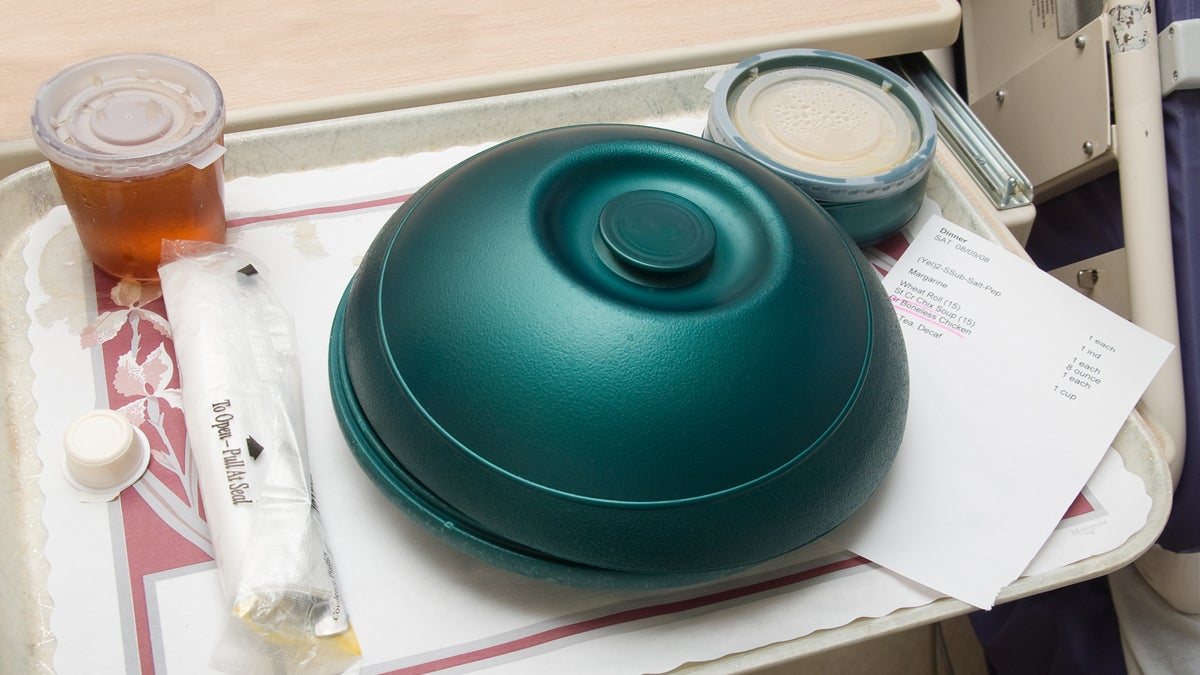To catch food allergies at the hospital, Pa. group calling for more vigilance
 Photo via ShutterStock) " title="sshospitalfoodx1200" width="1" height="1"/>
Photo via ShutterStock) " title="sshospitalfoodx1200" width="1" height="1"/>
(Photo via ShutterStock)
Delivering the right diet to patients in the hospital is complicated. That’s the takeaway from a June report from the Pennsylvania Patient Safety Authority.
The agency identified dietary errors in 285 events at hospitals around the state between 2009 and 2014.
Nearly 300 errors might not seem like a lot, but Susan Wallace, an analyst with the state’s patient safety authority, said any preventable event warrants concern.
The most common errors involved a missed food allergy. In other cases, patients received the wrong diet or a meal meant for another patient. In a small number of instances — eight — the result was serious.
Take one patient with a fish allergy; the doctor was notified, but the information got lost in the system.
“And somehow it doesn’t reach the dietary department, who fills tray and then delivers the food item to the patient,” said Wallace. “And the patient, for whatever reason, doesn’t recognize it’s a fish item, and then eats the item and can have like an anaphylactic reaction.”
Wallace’s group is recommending hospitals review their process for communicating and tracking dietary needs.
While special computer programs can help, Jennifer Ross, director of nutrition services at Abington Health, said it’s a tricky job. Keeping up with patients’ dietary needs involves a lot of vigilance, meetings and checking and rechecking ingredients and patient allergies, both electronically and manually.
“First of all, we have to be absolutely on top of what comes in,” she said. “So if we get our usual tomato sauce subbed by our vendor, we need to make the diet office aware of that, so they have to manually check against the list of ingredients in the new tomato sauce.”
The patient safety authority has also created a tip sheet, and recommends patients or their caregivers reiterate food allergies and dietary needs to providers, as well as those ordering and delivering their food.
WHYY is your source for fact-based, in-depth journalism and information. As a nonprofit organization, we rely on financial support from readers like you. Please give today.

